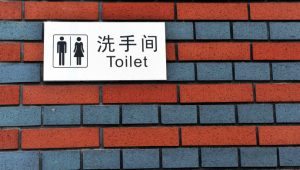Chinese-to-english translations have long been hilariously terrible, but if Ringy can make it work there will be some serious bucks in the business

Without previous training, expats coming to China can have a hard time dealing with Chinese writing and translation becomes a must to survive everyday life. The absence of Google translation has left the space wide-open for translation tools and apps targeting expats. However, many of these are chatbots and “dumb” dictionaries. Ringy, a WeChat-based translation service, has decided to go the other way around by embracing real, human intelligence. On top of that, the translation service is completely free and powered by volunteers looking to interact in English.
People wanting human-powered translation and communication can add “ringyringy” on WeChat. After that, users can copy and paste Chinese text, type in English, or even upload a picture and they will get connected with a Chinese native speaker to help. Voice messages are also supported, but currently only available for Android phone users.
Ringy also provides concierge services such as finding a maid, shipping company, or something more mundane like food delivery for RMB 1 for each minute of help. This is the only service they charge for and all fees go directly to the volunteer. Ringy does not take a commission from the volunteer or user.
“China has a great sum of people who care about the world. They love to put their effort towards better value than money,” Swan Huang, founder and CEO of Ringy says. “Let’s say one of our volunteers has to pay 1,000 RMB to register for a class so they can talk with a foreigner. Through Ringy, our volunteers can interact with foreigners for free”
Also Read: What made a unicorn hunter invest in ofo?
To maintain human translation, and fend off chatbots, Swan is aware that she will have to manage the supply and demand of the translation work. To manage the growing demand for free translation, Swan says that she will apply incentives such as certificates for volunteering certain hours as well as language level certificates.
Currently, the 90 translators do most of the work for free. They even go through four language skills test to be qualified as a Ringy volunteer. To keep track of all the request, the volunteers are in one WeChat group where they share the user responses and requirements.
“30% are college students and 30% are white-collar workers with a steady job, some working in an international company. They think not just about their job, but also how they can improve China,” Swan says.
Founded in February 2016, the Shenzhen-based company now has 10,000 followers on WeChat and is looking for investment to expand to the estimated 2 million expat residents in China. The company looks to add other languages such as Korean and French, two other languages spoken widely in China.
Also Read: O2O bike-rental deposits in China may not be as secure as users think
Another company solving the language problem in China is Waygo, an optical character recognition (OCR) app that works even without the internet. When you scan the Chinese character with the app, it instantly translates the phrase for the user. The free plan includes up to 10 phrases a day; after that user can sign up for the premium plan.
—
The article In the world of chatbots, Ringy is gaining ground with human translation first appeared on Technode.
Copyright: hxdbzxy / 123RF Stock Photo
The post In the world of chatbots, Ringy is gaining ground with human translation appeared first on e27.

